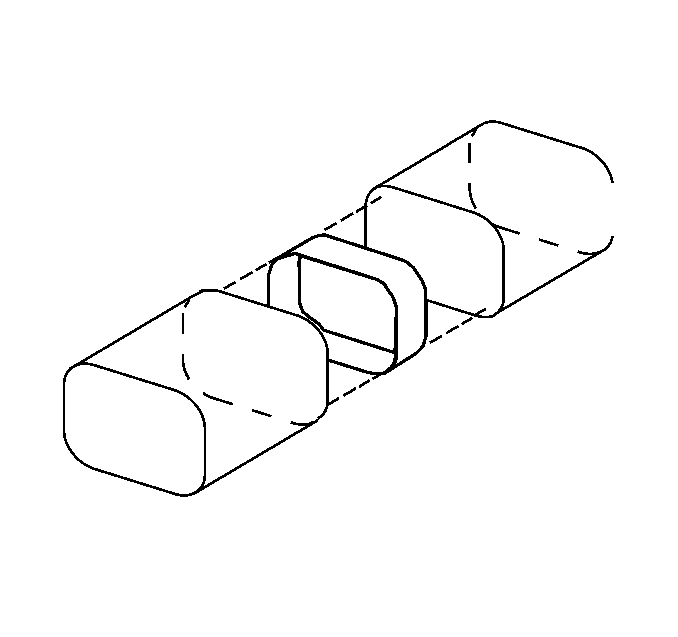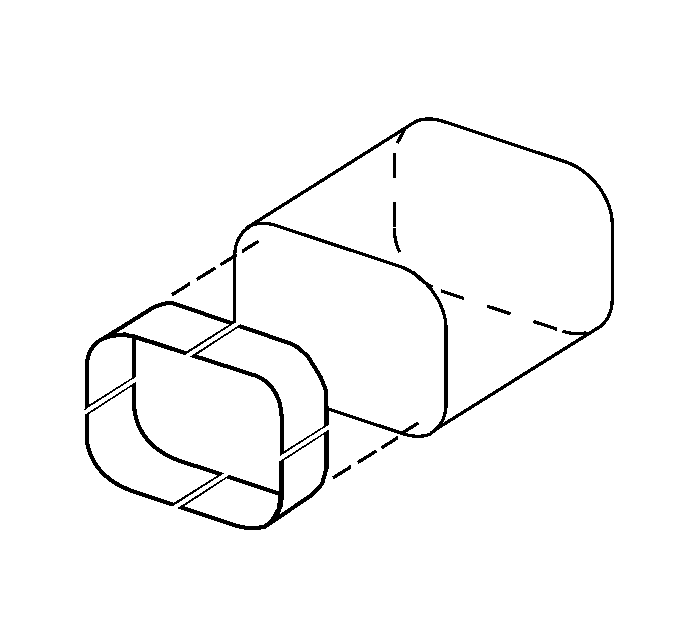For 1990-2009 cars only
Procedure
Notice: When determining the area to perform the sectioning near a riv-nut within the recommended areas, choose a location that centers the sleeve through the hole. This will ensure that riv-nut fasteners remain straight during installation.
Important: There are some areas on the rails that are best repaired using the sleeved butt-joint method. Use 25 to 50 mm of material to act as a backing plate when installing the sectioned service part.
Important: Use the sleeved butt-joint only in the areas designated.
- Cut the service part to appropriate length (according to dimensions), to replace removed section of damaged rail.
- From unused portion of service part; measure, mark, and cut 25 to 50 mm of rail to be used as a sleeve (backing plate), at the sectioning joint.
- Cut through each side of the sleeve to create four individual L-shaped pieces that can be installed in the undamaged portion of the frame rail.
- Install the four pieces, one at a time.
- Trim the pieces, as necessary, to provide a flush fit along the butt-joint surface.
- Tack-weld the sleeves into place.
- Once the sleeves are in place, check the fit of the service part. Grind sleeve as necessary to allow for accurate alignment of the new part.
- Temporarily remove service part and prep all bare metal surfaces with a suitable weld-through primer.
- Stitch weld along the entire sectioning joint. Make 25 mm (1 in) welds along the seam with 25 mm (1 in) gaps between them. Then go back and complete the stitch weld. This will create a solid joint with minimal heat distortion.
- Prime all bare metal surfaces with DP90, or an equivalent anti-corrosion primer. Do not top-coat any bonding surface.
- Clean and prepare all bonding surfaces as necessary.


Notice: Retain a gap of one and one half times the metal thickness at the butt-joint when attaching the service part to the vehicle.
